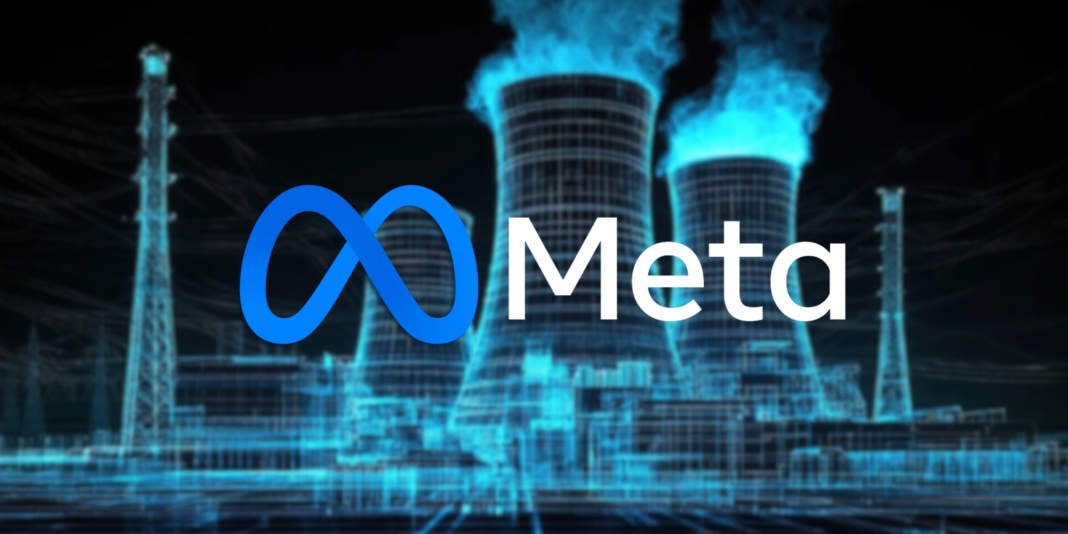Table of Contents
Meta, the parent company of Facebook, is taking an innovative approach to power its artificial intelligence (AI) systems. As AI technology becomes more advanced, it demands vast amounts of energy to operate. To meet this growing need, Meta is planning to use mini nuclear reactors as a sustainable and efficient energy source. This bold move could redefine how tech giants power their operations while addressing environmental challenges. Let’s explore what this means, how it works, and why it’s a game-changer for the tech industry and beyond.
The Need for Smarter Energy Solutions
Artificial intelligence systems are incredibly powerful, but they are also energy-intensive. AI requires massive data centers to process information, and these centers consume enormous amounts of electricity. This creates two main challenges:
- Rising Energy Costs: Operating these data centers is expensive, and energy prices are constantly increasing.
- Environmental Concerns: Many data centers rely on non-renewable energy sources, which contribute to pollution and climate change.
Meta’s decision to adopt mini reactors aims to tackle both these problems by providing a cleaner and more efficient energy solution.
What Are Mini Nuclear Reactors?
Mini nuclear reactors, also known as small modular reactors (SMRs), are a new type of nuclear power technology. Unlike traditional nuclear reactors, SMRs are:
- Smaller in Size: They can fit in tighter spaces and require less infrastructure.
- Easier to Build: They are built in factories and shipped to their locations, making them faster and cheaper to deploy.
- Safer: Advanced designs reduce the risk of accidents, making them ideal for sensitive operations like powering data centers.
These reactors produce a steady supply of clean energy, which is perfect for Meta’s AI systems that need constant power.
How Meta Plans to Use Mini Reactors
Meta’s AI operations require advanced energy solutions, and here’s how they plan to implement mini reactors:
- Direct Power Supply to Data Centers
The mini reactors will provide energy directly to Meta’s data centers, ensuring uninterrupted power for AI processing and machine learning tasks. - Sustainability Goals
By using nuclear energy, Meta aims to reduce its carbon footprint and support global sustainability efforts. This aligns with the company’s long-term environmental commitments. - Energy Independence
Mini reactors allow Meta to generate its energy, reducing reliance on external power grids and minimizing risks from energy shortages or outages.
Why Is This Move Significant?
- Pioneering Technology in Tech Infrastructure
Meta’s decision to use nuclear power sets a precedent for other tech companies. It shows that advanced technologies like AI can be powered in innovative, sustainable ways. - Environmental Benefits
Nuclear power is one of the cleanest energy sources available, producing zero greenhouse gas emissions during operation. This helps combat climate change. - Energy Efficiency
Mini reactors provide a consistent energy supply, unlike renewable sources such as solar or wind, which can be affected by weather conditions. This reliability is crucial for AI systems that run 24/7.
Challenges and Concerns
While the idea of using mini reactors is exciting, it does come with challenges:
- Public Perception
Many people associate nuclear energy with safety risks due to past accidents like Chernobyl or Fukushima. Educating the public about the safety of modern reactors is essential. - Cost of Implementation
Although SMRs are cheaper than traditional reactors, they still require significant upfront investment. However, the long-term savings in energy costs could outweigh the initial expenses. - Regulatory Hurdles
Nuclear power is heavily regulated, and obtaining the necessary approvals can be time-consuming. Meta will need to work closely with governments and regulatory bodies to move forward.
How This Impacts the Future of Technology
Meta’s adoption of mini reactors could spark a trend in the tech industry. Other companies may follow suit, exploring nuclear power and other innovative energy solutions for their operations. This could lead to:
- Faster AI Development: With reliable power sources, companies can focus more on advancing AI technology.
- Green Tech Revolution: The tech industry could become a leader in sustainability, inspiring other sectors to adopt clean energy.
- Global Impact: Wider adoption of mini reactors could help countries reduce their dependence on fossil fuels and transition to cleaner energy systems.
Meta’s Role in the AI Revolution
This move is part of Meta’s broader vision to stay ahead in the AI race. By investing in energy innovation, Meta demonstrates its commitment to powering the future responsibly. The company has already made significant advancements in AI, such as building language models and virtual reality systems. Mini reactors could take these efforts to the next level, ensuring that Meta remains a leader in the tech space.
Conclusion
Meta’s decision to use mini nuclear reactors to power its AI systems is a bold and forward-thinking move. It addresses key challenges in energy consumption, environmental impact, and sustainability while setting an example for the tech industry.
As AI continues to shape our world, finding smarter and greener ways to power this technology is crucial. Meta’s innovative approach shows that clean energy and cutting-edge technology can go hand in hand. If successful, this initiative could inspire other companies and industries to rethink their energy strategies, making a lasting impact on the planet and the future of technology.
What do you think? Are mini reactors the future of clean energy in tech? Share your thoughts and let’s start the conversation!






































